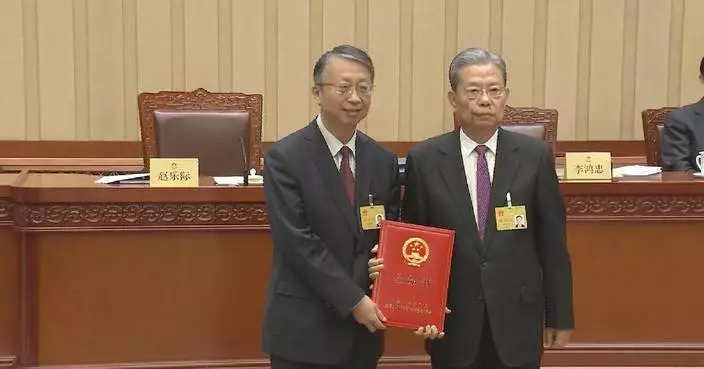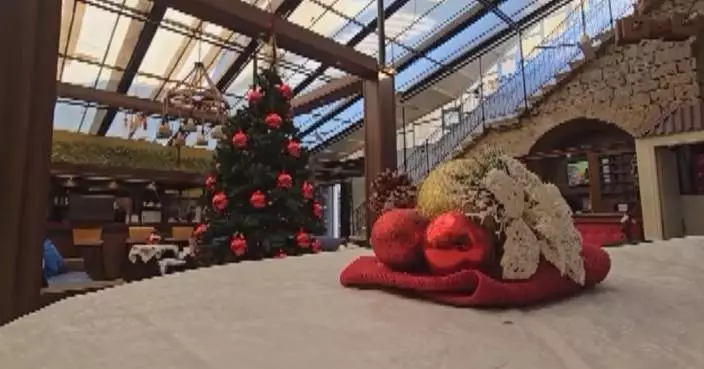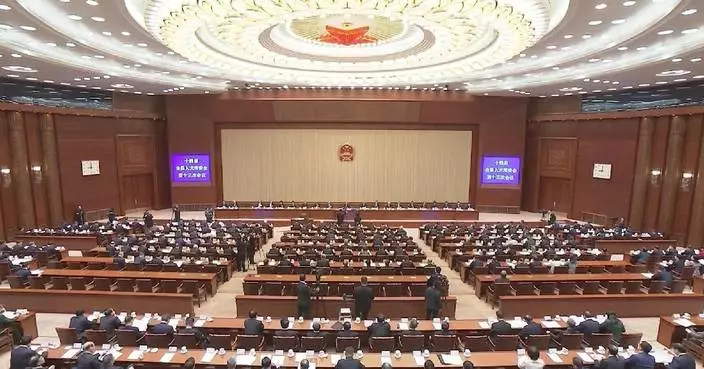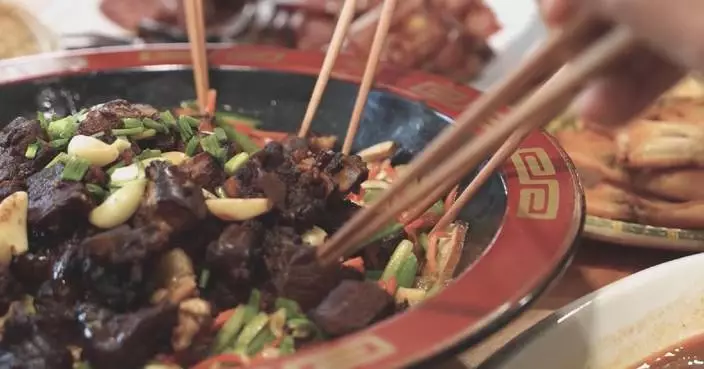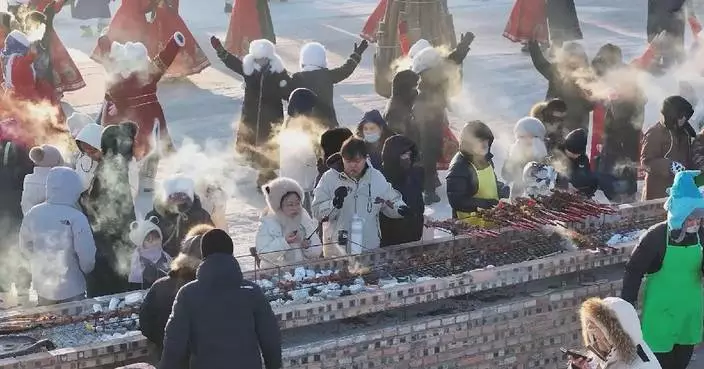Former residents of a war-ravaged neighborhood in Syria's capital Damascus are returning to the once barred blocks trying to find what's left of their homes from rubbles.
Once home to 50,000 residents, Qaboun in eastern Damascus has seen most of its buildings destroyed and flattened to the ground during the civil war.
The Syrian military seized this neighborhood in 2018 and it remained barred since that time until the day of the toppling of the government. Now, some former residents are returning to assess the damage to their homes - or what remains of them.
The devastation is overwhelming; the streets are nearly lifeless, and most structures have been reduced to rubble after years of intense fighting between the Syrian military and opposition forces.
The few standing buildings are uninhabitable, scarred by bomb damage and riddled with bullet holes.
Khadija Kwaider, who once lived in Qaboun, has made her first time back over more than a decade. She is trying to send videos to her relatives to help her recognize the routes that lead to her family's house.
"We do not have any financial capability to repair the damages. Bringing life back here needs efforts that we do not have. I doubt that any people can return here to rehabilitate the area. For us, my husband works on the basis of daily wage that enables us to make ends meet only, so no chance to repair the house," said Khadija.
Khadija has been meeting with other residents of Qaboun to work together to locate where each other's homes used to be.
A 45-year-old Iyad Hendi has a good memory of how the neighborhood was before the war, but he has little hope for getting back to live in his family's house given the scale of damage.
"There was a factory here, I could specify the route, reaching there, there was an institute and our house was to the right of the institute, but now it is a pile of rubbles only. The landmarks of the narrow alleys are completely erased," he said.
Iyad and his wife have chosen not to bring their children back to witness the scars of conflict, but they remain hopeful for a brighter future for them.
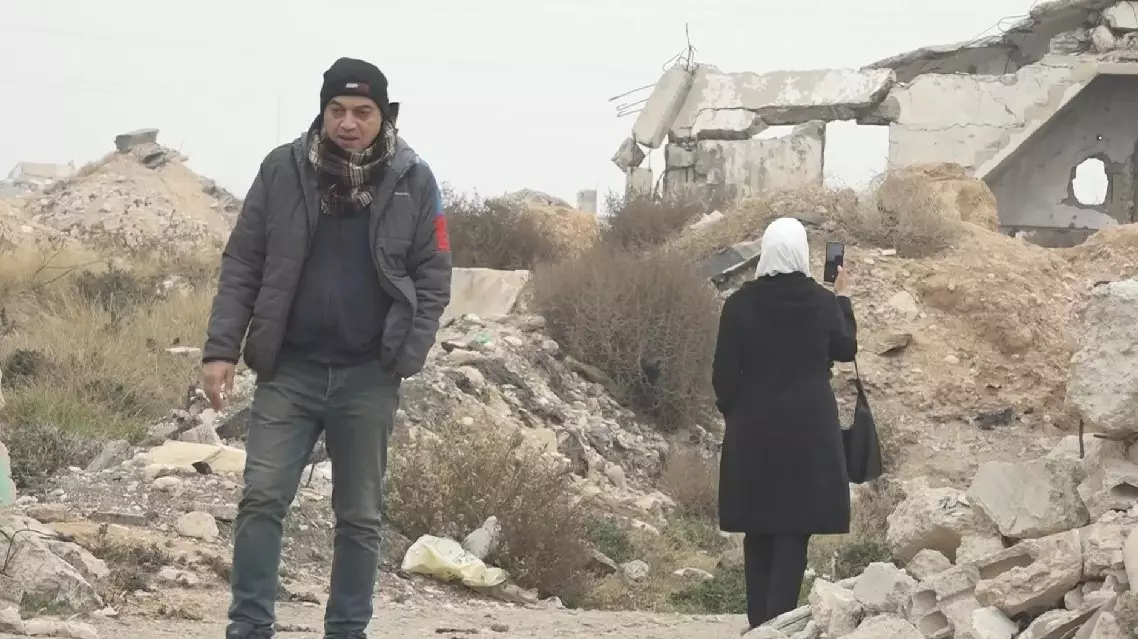
Damascus residents return to shattered neighborhood to find home
The second meeting of High-Level Consultation Mechanism on People-to-People and Cultural Exchanges between China and Japan, was held in Beijing on Wednesday, with 10 important agreements reached there.
Wang Yi, a member of the Political Bureau of the Communist Party of China Central Committee and Chinese foreign minister, and Takeshi Iwaya, Japanese minister for foreign affairs, jointly attended the meeting.
The 10 agreement are as follows.
First, the two sides will promote youth exchange visits, and encourage and support study trips between the two countries.
Second, the two sides will deepen cooperation in the field of education, strengthen the exchange of overseas students, and support primary and secondary schools in the two countries to establish sister schools and institutions of higher education to carry out inter-school cooperation.
Third, the two sides will support tourism cooperation and introduce more facilitation measures to promote mutual visits between tourists from the two countries.
Fourth, the two sides will build more bridges for exchanges between sister cities and make good use of mechanisms and platforms such as the China-Japan Governor Forum, the China-Japan-ROK Cultural Exchange Year and the Culture Cities of East Asia to expand friendly exchanges at the local and non-governmental levels.
Fifth, the two sides will strengthen sports exchanges and cooperation, and support each other in hosting major sports events such as the 2025 Harbin Asian Winter Games and the Aichi-Nagoya Asian Games in 2026.
Sixth, the two sides will support continued cooperation in film, television, music, publishing, animation, games and other cultural and entertainment industries, exchange visits of high-level art groups, and support the translation and publication of classic works between the two countries.
Seventh, the two sides will strengthen exchanges and cooperation between media and think tanks, play a positive role in bilateral relations, and strive to improve public opinion and the environment for public opinion. The two sides will support exchanges and cooperation in new media and encourage exchanges between positive vibes of the two countries.
Eighth, the two sides will conduct exchanges between women's groups and share experience on promoting the common development of men and women. China invites Japan to attend the Global Leaders' Meeting on Gender Equality and Women's Empowerment to commemorate the 30th anniversary of the Fourth World Conference on Women.
Ninth, the two sides will build the World Expo 2025 in Osaka, Kansai, into a platform for exchanges and friendship between the two peoples. China supports Japan in hosting the expo, while Japan welcomes China's participation and will provide assistance in the preparation and operation of the China Pavilion.
Tenth, the two sides will hold the third meeting of China-Japan high-level consultation mechanism on people-to-people and cultural exchanges in Japan in due course.
Noting that next year marks the 80th anniversary of the victory in the Chinese People's War of Resistance Against Japanese Aggression and the World Anti-Fascist War, Wang said that the purpose of remembering this history is to draw lessons from it and cherish the hard-won peace.
China hopes and believes that Japan can once again demonstrate its determination for peaceful development and work with China to promote the sound and stable development of China-Japan relations in the spirit of facing history squarely and looking to the future, said Wang.
Iwaya said Japan is willing to work with China to improve the quality of people-to-people exchange projects, deepen exchanges between sister cities and take more measures to facilitate personnel exchanges.
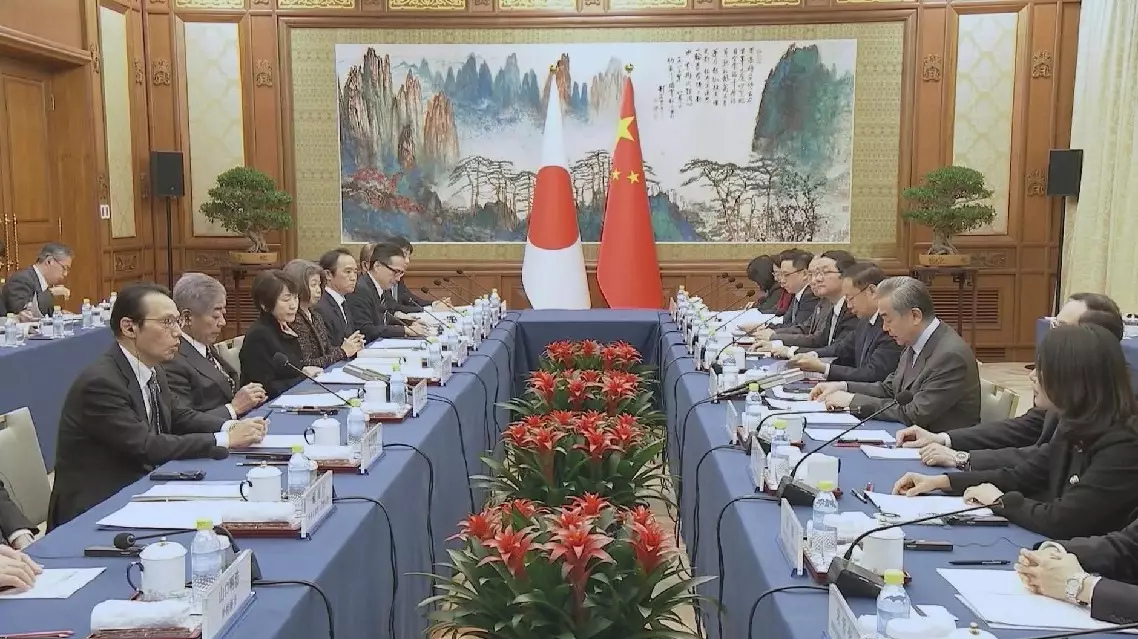
China, Japan reach 10 agreements on people-to-people, cultural exchanges




